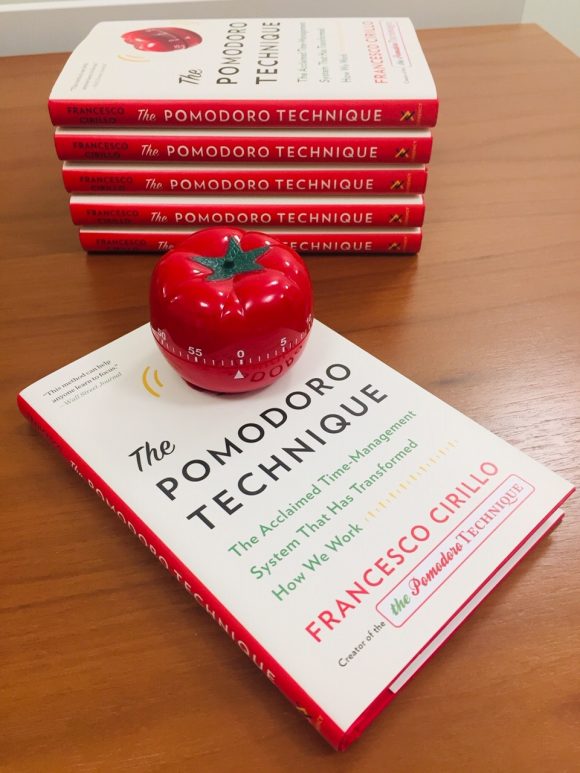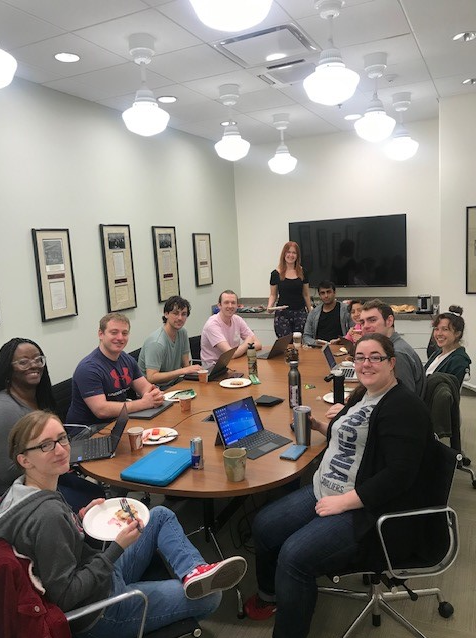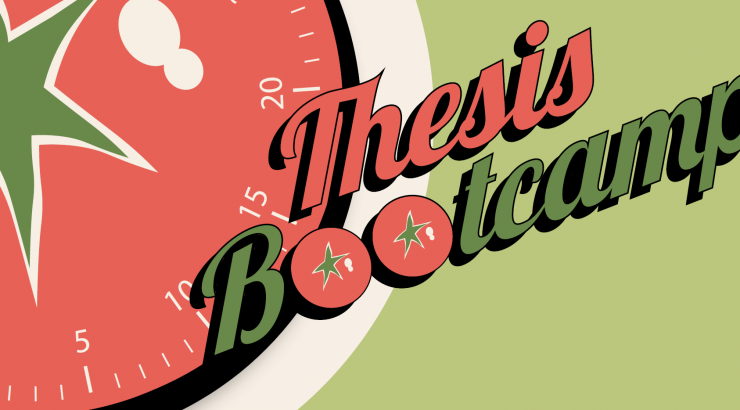A Tomato Saved My Thesis Fall 2019 Marks the 3rd Biannual Thesis Bootcamp
August 29, 2019
Where do you do your writing? The library? Your room?
When do you write? In the morning with a hot coffee, at night when you finally have some quiet?
Do you have a schedule? Pace yourself? Take breaks?
If your answers to these questions are anything like my own (wherever and whenever I find the time!), then Wilkinson College may have something right up your alley.
This fall will mark the 3rd Biannual Wilkinson College Thesis Bootcamp, where undergraduate and graduate students will be spending an intensive weekend working on their writing and learning tips and tricks for developing stronger writing process skills. Founded by Political Science Associate Professor and Director of the Henley Lab Dr. Ann Gordon and Graduate Programs Director Alison DeVries, this writing boot camp is one of many across the nation. Writing boot camps are springing up focusing on everything from college application essays to Human Research Protection Programs at Harvard Medical School.
But what makes Wilkinson College’s unique?
A tomato.

Or, more accurately, a bright red tomato-shaped kitchen timer.
To get participants accustomed to thinking about writing methods and practices, Wilkinson College’s Thesis Boot Camp employs use of the Pomodoro Technique. The method is a simple one, using a tomato shaped timer to mark 25 minute increments with short breaks in-between. The technique can be used for anything, but in the case of writing, before you know it you will have spent over 60 minutes writing.
The technique has been used worldwide to great success. “It works,” says freelancer Kat Boogaard. Students, staff, and faculty here at Chapman have tried the method. Some love it, continuing to use the technique since the first Thesis Bootcamp in Fall of 2018. Others, who may not have cared for the method, were led to research finding other methods that worked to the same effect: building routine and method for writing geared towards productivity and not grinding your soul in the process.
Full disclosure, the Pomodoro Technique did not save my thesis, but, I was able to write and revise a number of poems, one that eventually got published. And, truth be told, it may not be the cure-all to writing anxieties, but will get you focused on the how, when, and why you are doing some of the most important writing in your life thus far. Dramatic, but true.
In my undergraduate and graduate studies, the majority of my writing was done under elements of pressure: The deadline, a minimum number of pages, hoping the professor would find my topic “worthy.” I was focused on outside elements that had little to do with my writing and learned to write academically under conditions of strain and pressure when I should have been writing aiming for a strong argument and that I was engaging with and contributing to the larger body of knowledge.
Now, though a bright red ticking time may seem like just one more element of pressure, the overall effect of getting yourself to think about writing as something that deserves process, time, attention, and consideration is worth it.
Though this is only the third Thesis Bootcamp, all past “survivors” (as Dr. Gordon has said) have found the weekend intensive to be beneficial to their writing. One graduate student was able to complete an entire draft of their thesis. Another student said the weekend was “the most helpful thing she had done at Chapman.” At the very least you will walk away with hundreds if not thousands of more words written than you had before, at the most y ou will have a productive and reflective weekend that empowers you to consider your writing as expressive, critical, and something to be proud of rather than something to fear or “get out of the way.”
ou will have a productive and reflective weekend that empowers you to consider your writing as expressive, critical, and something to be proud of rather than something to fear or “get out of the way.”
Due to the boot camp’s success it will be open to thesis and dissertation writers campus-wide for the first time, and seating will be limited to 25 students. Thesis Bootcamp will begin on Friday, September 27th and end Sunday afternoon.
Interested? Email Administrative Assistant Talisa Flores at tflores@chapman.edu for more information. See you there!


